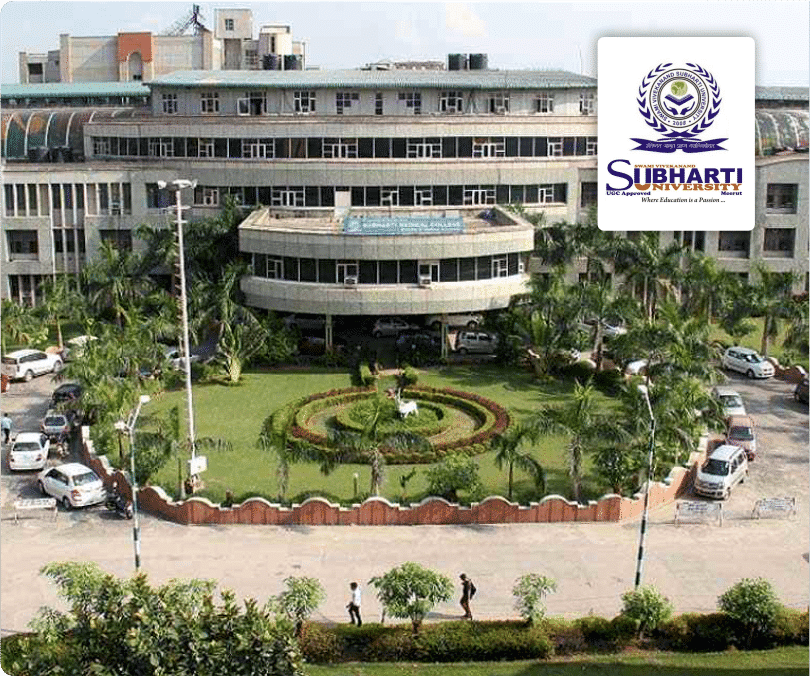
Is MBA After MBBS a Good Option to Upgrade?
If you have completed your MBBS and don’t know what to pursue further for career advancement, then MBA after MBBS might be a perfect choice for you. Students prefer MBA after MBBS for their career growth. The MBA program offers various benefits compared to other courses such as MD or MS.
Furthermore, MBBS graduates are typically expected to become doctors and work in hospitals or clinics. However, times have changed. Today, many medical professionals are looking for ways to combine their medical expertise with management skills to impact their careers significantly. Taking admissions for in MBA is less competitive than MD or MS.
MBA after MBBS: Introduction
There are many reasons why an UGC approved MBA after MBBS can be a good choice. It gives you industry-relevant knowledge and skills. In today’s fast-paced world, medical expertise and business skills are rare and valuable.
- Strong Knowledge: An MBA after MBBS gives you a significant advantage in career growth. Combining medical expertise with business skills makes you stand out to employers and unlocks higher-paying opportunities.
- Career Opportunities: As the healthcare sector grows, there is a high demand for skilled leaders. An MBA equips you to take on essential roles in hospitals, healthcare companies, or government organizations.
- Career Flexibility: If working as a doctor isn’t your only dream, an MBA opens doors to exciting fields like healthcare consulting, hospital management, or entrepreneurship. For instance, you could start your own health-tech company or launch a chain of clinics.
- Improved Skills: An MBA improves your communication, teamwork, and problem-solving abilities with technical skills. These skills are valuable both in your career and personal life.
- Global Perspective: Many MBA programs expose you to international healthcare systems, helping you understand how different countries manage healthcare challenges.
- Growth in Healthcare: Due to the continuous growth in the healthcare sector, there will be a high demand for professionals with medical knowledge and management skills.
Thus, Completing an MBA after MBBS builds your management skills with your medical expertise and adds exponential growth to your career. This leads to the high demand for your profession in the job market.
MBA after MBBS: Types of MBA
You will encounter different types of MBA programs when you decide to pursue an MBA after MBBS. Each program is designed to suit various needs and career goals. The most common types include full-time MBA, part-time MBA, executive MBA, and online MBA.
- Full-time MBA: This is an excellent option if you want to focus entirely on your studies. Generally, it takes 2 years to complete and is perfect for fresh MBBS graduates ready to start a new career path.
- Part-Time MBA: A part-time MBA is ideal for doctors who are working but want to gain business skills. Classes are usually held on weekends or evenings, making it easy to balance work and studies.
- Executive MBA (EMBA): This program, designed for professionals with several years of experience, helps experienced doctors move into leadership roles. It’s a quicker, more intensive option.
- Online MBA: An online MBA is best for those who want flexibility in learning. You can study at your own pace, anywhere in the world, while continuing your job or other responsibilities.
- One-Year MBA: This 1-year MBA program is completed in minimum duration. It is best suited for individuals who want to advance their careers in the meantime. It’s an excellent choice for those eager to step into managerial roles in less time.
In conclusion, the type of MBA you choose after MBBS depends on your career goals and current lifestyle. Each type is designed to fit the needs of different people. Thus, select the type of MBA after MBBS in the field of your interest.
MBA after MBBS: Specializations
| MBA Specializations | Description |
|---|---|
| Healthcare Management | Focuses on managing healthcare systems, hospitals, and medical practices effectively. |
| Hospital Administration | Prepares professionals for administrative and operational roles in hospitals and clinics. |
| Human Resources | Emphasizes managing personnel and organizational behavior in healthcare settings. |
| Health-Tech Management | Combines technology and healthcare to manage digital health solutions and innovations. |
| Finance | Focuses on financial management, budgeting, and cost control in the healthcare industry. |
| Marketing | Prepares for roles in promoting healthcare services and medical products effectively. |
| Pharmaceutical Management | Centers on managing pharmaceutical businesses, including sales, production, and regulations. |
- Healthcare Management: The MBA in Healthcare Management provides intellectual abilities that can be used in the healthcare sector to manage or administer the organisation. The program develops business skills with core medical knowledge.
- Hospital Administration: The MBA in Hospital Administration provides management skills. The specialisation covers staff management, operations, and patient satisfaction. It is an excellent path for future hospital CEOs.
- Pharmaceutical Management: This option explores the business side of pharmaceuticals, including marketing, production, and sales. It’s ideal for MBBS graduates who want to work and build their careers in the pharmaceutical sector.
- Health-Tech Management: The specialisation focuses on managing and innovating tech solutions because of the high demand for technology in the healthcare sector. It’s great for those who want to explore healthcare systems.
- Finance: MBA In Finance Management While not specific to healthcare, finance helps you understand hospital budgets and financial strategies. It’s a helpful choice if you’re planning to handle large-scale operations.
- Marketing: Learn how to promote healthcare services or medical products. This is especially useful for those interested in branding or advertising healthcare ventures.
- Human Resources (HR): The MBA in HR focuses on effectively managing healthcare staff. It is ideal for those who want to manage recruitment and improve hospital workplace systems.
Understanding your interests and career aspects is essential to selecting the right specialisation for an MBA after MBBS. The right MBA specialisation will help you focus on your career and build your expertise.
MBA after MBBS: Career Scope
| Career Role | Salary Package (in LPA) | Industry |
|---|---|---|
| Hospital Administrator | 12 - 20 | Healthcare & Hospitals |
| Healthcare Consultant | 15 - 25 | Consulting Firms |
| Pharmaceutical Product Manager | 10 - 18 | Pharmaceutical Industry |
| Health-Tech Manager | 18 - 30 | Health-Tech Companies |
| Public Health Policy Maker | 8 - 15 | Government & NGOs |
| Medical Entrepreneurship | Varies (10+) | Startups & Private Ventures |
| Finance Manager in Healthcare | 10 - 20 | Healthcare Finance |
| Marketing Manager in Pharma | 12 - 22 | Pharmaceutical Marketing |
Conclusion
In conclusion, pursuing an MBA after MBBS is an excellent choice for a career upgrade. It combines medical expertise and business skills. This combination boosts your skills and prepares you for the challenges in the healthcare industry.
Whether you choose to manage a hospital, work in the pharmaceutical industry, or start your own healthcare business, an MBA offers medical knowledge and managerial abilities. There is a growing demand for professionals with medical expertise and leadership skills. As a result, an MBA after MBBS becomes a highly preferable course.
An MBA after MBBS is best for MBBS graduate to advance their career and make a positive impact. It’s a decision that can transform your future and help you achieve your dreams.
Most Popular Blogs

Distance MCA vs Online MCA vs Regular MCA: Which Study Mode is Best?

Is Online MCA in Data Science Worth It in 2026? Career Scope & Benefits

Online MCA in Data Science: Course Details, Fees, Eligibility & Career Scope

Distance MCA at Jain University: Fees, Syllabus, Eligibility & Career Scope

Why Pursue an Online MBA in Logistics and Supply Chain Management in 2026?



















